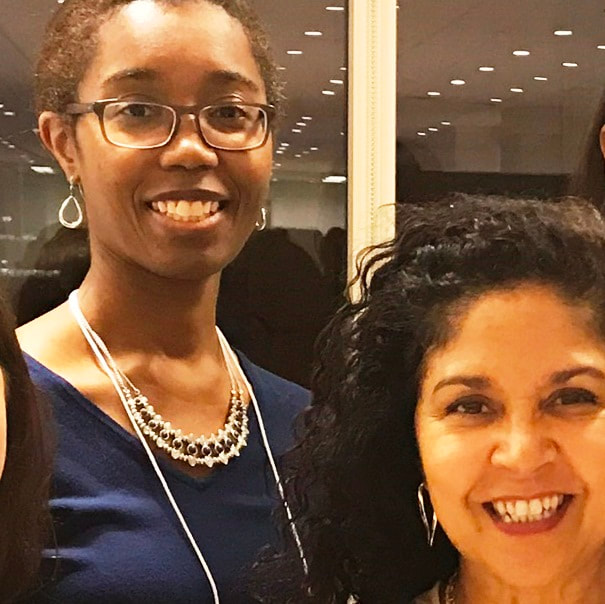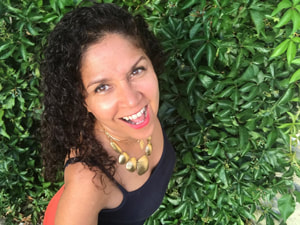|
It is possible that only very few of you have heard that the US Global Change Research Program issued an important report titled: Fourth National Climate Assessment, Vol II. The report was released the day after Thanksgiving, so I don't blame you if you didn't see it. You were probably laying on the couch, belly full of turkey. Or perhaps you were at the mall, fighting the Black Friday crowds. So, since maybe not too many people saw it, I wanted to give YOU a chance to know about this. I am sending this to you because I am your friend.
Unlike the recent UN Intergovernmental Panel on Climate Change, this new report focuses on the effects of climate change on the US. Here are some key takeaways:
Divided in 29 chapters, it summarizes effects on communities, the economy, health, water, ecosystems, agriculture, infrastructure, oceans and coasts, air quality, tourism... Basically, every aspect of life in the US will be (or is) affected. The report also presents the expected effects by region of the US. Check out your region if you want to see a crystal ball into your (near) future. In my view, the most interesting chapters are the two chapters on Reducing Risks through Adaptation and Emissions Mitigation. In short: "Communities, governments, and businesses are working to reduce risks from and costs associated with climate change by taking action to lower greenhouse gas emissions and implement adaptation strategies. While mitigation and adaptation efforts have expanded substantially in the last four years, they do not yet approach the scale considered necessary to avoid substantial damages to the economy, environment, and human health over the coming decades." In my interpretation, the report basically emphasizes mitigation and adaptation actions LOCALLY (state, cities, private sector), rather than (or maybe in addition to) at the federal or global levels. I wonder why... It states: "Mitigation and adaptation actions also present opportunities for additional benefits that are often more immediate and localized, such as improving local air quality and economies through investments in infrastructure." Yes. Sure. It would be good to act locally to mitigate and adapt to the expected effects of climate change. Sure, let's plant more trees in New York. Let's shut down more power plants. Sure. Would these local actions result in measurable benefits at the global level? Only if many, many places do the same. Do we really think that we will be OK as California burns, Venice disappears into the ocean, and tropical storms flood the east coast? No. It is all interconnected. As the report says: "Extreme weather and climate-related impacts on one system can result in increased risks or failures in other critical systems, including water resources, food production and distribution, energy and transportation, public health, international trade, and national security." Believe or don't believe. Either way, take the time to understand what is happening. Do what you can to help mitigate and adapt. Dr. Luz Claudio is an environmental health scientist and author of the book: How to Write and Publish a Scientific Paper: The Step-by-Step Guide. She blogs about life in academia, and environmental health news. Opinions expressed on this blog are solely her own and may not reflect the opinions of her employer or colleagues.
0 Comments
Meet my former student, Sasha McGee, PhD, MPH. I met Sasha when she was still exploring her career options. After writing two papers while working as an intern in my research training programs, Sasha strengthened her credentials to pursue a career in epidemiology. Sasha is now a Senior Infectious Disease Epidemiologist at the DC Department of Health. Read about how she went from MIT doctoral graduate in technology to a meaningful career in public health.
--- One of the greatest challenges I faced while pursuing my education was not knowing what I wanted to do—professionally that is. I knew a lot about what I did not want to do (e.g., to do bench-work, to teach), but only had the faintest ideas of what I wanted to do. I knew that I wanted to do applied work that related to health, but exactly what that meant in terms of a career, I did not know. And so despite having no end goal in mind, I wrote essay after essay about my intended career path (nothing more than wild guesses really!) for various applications when they asked me the dreaded question. I even went as far as obtaining my doctoral degree based on these carefully crafted paragraphs. But after all those years of education—a bachelor’s degree in chemistry and doctoral degree in Health Sciences and Technology—I reached a point where I decided I needed to figure out this question of what I really wanted to do once and for all. I began researching careers in public health online fairly early on since it fit the criteria of being an applied field. After years of conducting research, I wanted a career in which I would be able to clearly see the impact of my work. I also knew that I did not want to just sit in front of a computer all day, but be able to interact with people. Initially, I thought that global health would suit me since I loved to travel. I began arranging meetings to learn more about this field, to get career advice, and explore masters of public health degree programs. I also attended some conferences in order to learn more about what was going on in the field and explored companies where I could potentially work. However, there were two major hurdles I soon discovered when it came to transitioning to this field. First, no one understood what my graduate degree was or meant when they reviewed my resume. Second, although I had a doctoral degree from the Massachusetts Institute of Technology, no one wanted to hire anyone without any work experience. I will cut out the painful parts, but needless to say I spent a great deal of time and effort trying to get a job without making any progress. Unfortunately having been in school all my life had not prepared me for how to successfully apply for jobs and I discovered there was a steep learning curve. I was able to arrange an internship (unpaid) at a local health department, which was an invaluable experience for me in terms of being exposed to public health. I also did a bit of consulting work, worked as a medical assistant, and completed a short-term research position similar to the kind I did in graduate school. Given my lack of progress in the job hunt, I decided I would return to school to get a master of public health degree sooner than I had initially planned. I reached out to a college classmate who I had spoken with previously to assist me in selecting a specific focus area since he was pursuing a doctoral degree in public health. It was through my discussion with him that I first learned about the field of epidemiology. It seemed interesting and to be a great fit for me given my analytic nature. After a great deal of internet research to understand exactly what epidemiology was, I was able to write the essays for my applications and my classmate kindly reviewed them to make sure it sounded like I knew what I was talking about. I ended up pursuing my master of public health degree in epidemiology at the University of North Carolina at Chapel Hill. Finally, I was not just going to school, but rather I was preparing myself for my career. It was a great experience! I am grateful to God for enabling me to do everything I have done, every opportunity He has provided, and for sustaining me even when my career was at a standstill. As I think back over my journey, certain things have been invaluable to my educational journey and career—first and foremost of which were strong writing skills. I have had to write countless essays, cover letters, responses to questions, etc., while pursuing various opportunities. At times I needed to be able to clearly and concisely convey information within tight word limits. Other times I had to persuasively answer pointed questions to make a case for my qualifications. In some cases, I was given free rein to address a question or topic and needed to compose an essay or short statement that would powerfully impact the readers and make me stand out from the rest of the applicants. Initially I felt daunted by each writing task, but after a while I began to see the various writing assignments as a sort of friendly challenge—something that could be conquered, although it often required a great investment of time. I learned another invaluable lesson from my advisor as I was pursuing my doctoral degree. When giving presentations, tell a story, don’t just present information (e.g., data in my case). This is actually also equally applicable when writing scientific articles. The tendency is to share everything—I definitely had that tendency. However, as exciting as the data are, when they are presented in the form of a story they are far more memorable to your audience. Currently, I am a Senior Infectious Disease Epidemiologist at the District of Columbia Department of Health. I absolutely love my work. I wish I could say it was a smooth journey once I figured out what career I wanted to pursue, but there were still more bumps along the way. As I share my experiences and encourage students and early career professionals who are just starting their journey, I realize how many others are experiencing the same challenges I did. Don’t despair; you are not alone in your still trying to figure it all out! Perhaps like me, you also have not yet been exposed to the specific field you will ultimately choose to pursue. I encourage you to take your time to investigate various career options online, talk with people to learn about potential career paths and get advice about careers you are considering, and to gain work experience along with your education. -- Sasha McGee, PhD, MPH |
This section will not be visible in live published website. Below are your current settings: Current Number Of Columns are = 1 Expand Posts Area = 1 Gap/Space Between Posts = 8px Blog Post Style = card Use of custom card colors instead of default colors = 1 Blog Post Card Background Color = current color Blog Post Card Shadow Color = current color Blog Post Card Border Color = current color Publish the website and visit your blog page to see the results AuthorDr. Luz Claudio is an environmental health scientist, mother and consultant, originally from Puerto Rico. She is a tenured professor of environmental medicine and public health. Luz recently published her first book: How to Write and Publish a Scientific Paper: The Step-by-Step Guide. Dr. Claudio has internship programs and resources for young scientists. Opinions expressed in this blog are solely her own and may not reflect her employer's views. Categories
All
|
|
Dr. Luz Claudio
[email protected] |
|
Opinions expressed in this website are solely Dr. Luz Claudio's own and may not reflect her employer's views. None of the information on this website should be taken as medical advice.
© COPYRIGHT 2018. ALL RIGHTS RESERVED.




 RSS Feed
RSS Feed